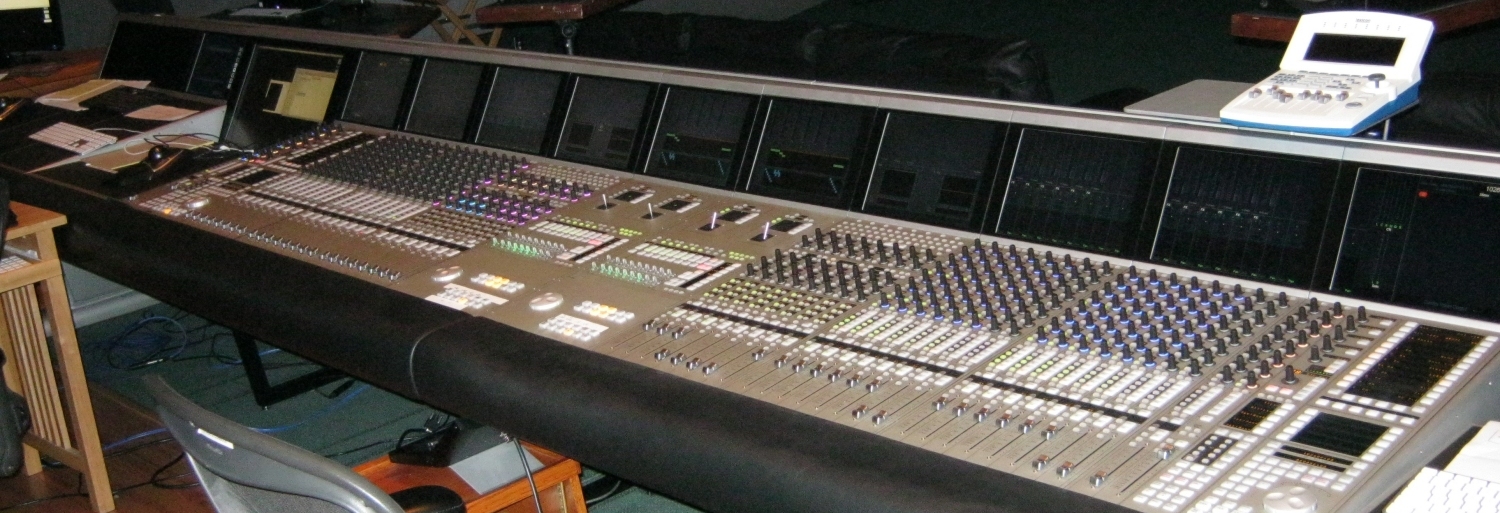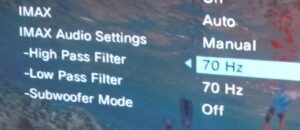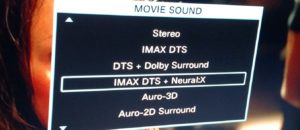With my whirlwind tour of three audio-themed conferences finally drawing to a close last week, I managed to make time for one more related stop while I was in L.A. Having just learned about some of the latest and greatest developments in movie and home theater audio from the point of view of the companies making (and selling) them, I wanted to find out what a professional feature film sound mixer has to say on the subject.
Marc Fishman is a talented mixer who was part of the Emmy-winning sound team on HBO’s ‘John Adams‘ miniseries, and has also worked on movies ranging from the slam-bang action of ‘We Were Soldiers‘ and ‘Source Code‘ to comedies and dramas like ‘Superbad‘ and (most recently) ‘The Five-Year Engagement‘.
While I was in L.A., Marc graciously made time to grab a bite to eat with me and discuss the current state of sound for films. We had a wide-ranging conversation on topics including current trends in sound design (Marc isn’t a fan of the way that many modern movies compress and flatten their dialogue tracks) to Dolby’s new 96k upsampling process (he’s skeptical, but still needs to hear it for himself), to new object-based sound formats like Dolby Atmos and SRS MDA (he thinks these are very exciting, though he still has some unanswered questions and believes there will be a learning curve during the transition).
In my brief visit to his studio before we got into the meat of our conversation, Marc demonstrated for me what it is that a sound mixer does to make a movie soundtrack. Some of the technical details (OK, most of them!) went over my head, but what I found particularly fascinating is just how much precision control the mixer has over every element in the track. With the spin of a knob, he can manipulate any point on the waveform of a specific sound. And he has a lot of knobs at his disposal!
Marc was able to show me a few scenes from a film that he worked on. Although the movie is a comedy, which most viewers don’t usually associate with having elaborate sound design (because they don’t typically feature too many rocking, concussive explosions), this one utilized a great deal of music in a great number of contexts. Some of it’s played as your standard non-diegetic background score, while other pieces need to sound like they’re being played live in a club or blaring from the speakers of a car’s stereo as it drives past. The mixer has to create the proper ambience and tone to sell all of those effects. Even when the scenes in question don’t have flashy, attention-grabbing sound effects, the process is much more complicated than most people realize.
Perhaps the most fascinating part of this visit occurred when Marc demonstrated to me a pretty amazing piece of gear called a Penteo processor that’s designed to upmix stereo recordings to multi-channel 5.1. Of course, most A/V receivers these days have similar features that deliver results that range from mostly-pleasing to just-adequate to kind-of-crappy, depending on the content. This one, though, was unlike anything I’d ever heard.
What’s so special about it? The Penteo can take a fully-mixed stereo recording (Marc played for me a couple of very intricate pop songs) and break it down into isolated sound elements with no bleeding through the channels. For example, with the flip of a switch, he was able to pull out just the backing vocals in a song and put them in a single surround channel with absolutely none of the lead vocal or any instruments audible. And it sounded crystal clear! He did the same for the lead vocal in the center channel, and the instruments wherever he wanted them. It sounded as if he was playing with all of the original sound stems and mixing them into discrete multi-channel. But Marc assured me that everything I heard came from a fully produced commercial recording.
Everyone in the audio community that Marc has shown this processor to has been stunned by it. The Penteo has been used to upmix vintage songs for the soundtracks to ‘Watchmen‘ and ‘Inglourious Basterds‘. Marc says that it also works not just on music, but on older stereo movie soundtracks too.
The craziest part of this? The Penteo sold for a very reasonable (by pro gear standards) $5,000. Yet despite this breakthrough technology and price point, the developer fell victim to corporate politics, and the company is essentially now in limbo. Only a handful of the processor units ever made it out into the wild. This seems like a grave injustice.
I want to thank Marc Fishman and the studio staff for indulging an amateur intruding into their space. I had a great time and learned some valuable information.





